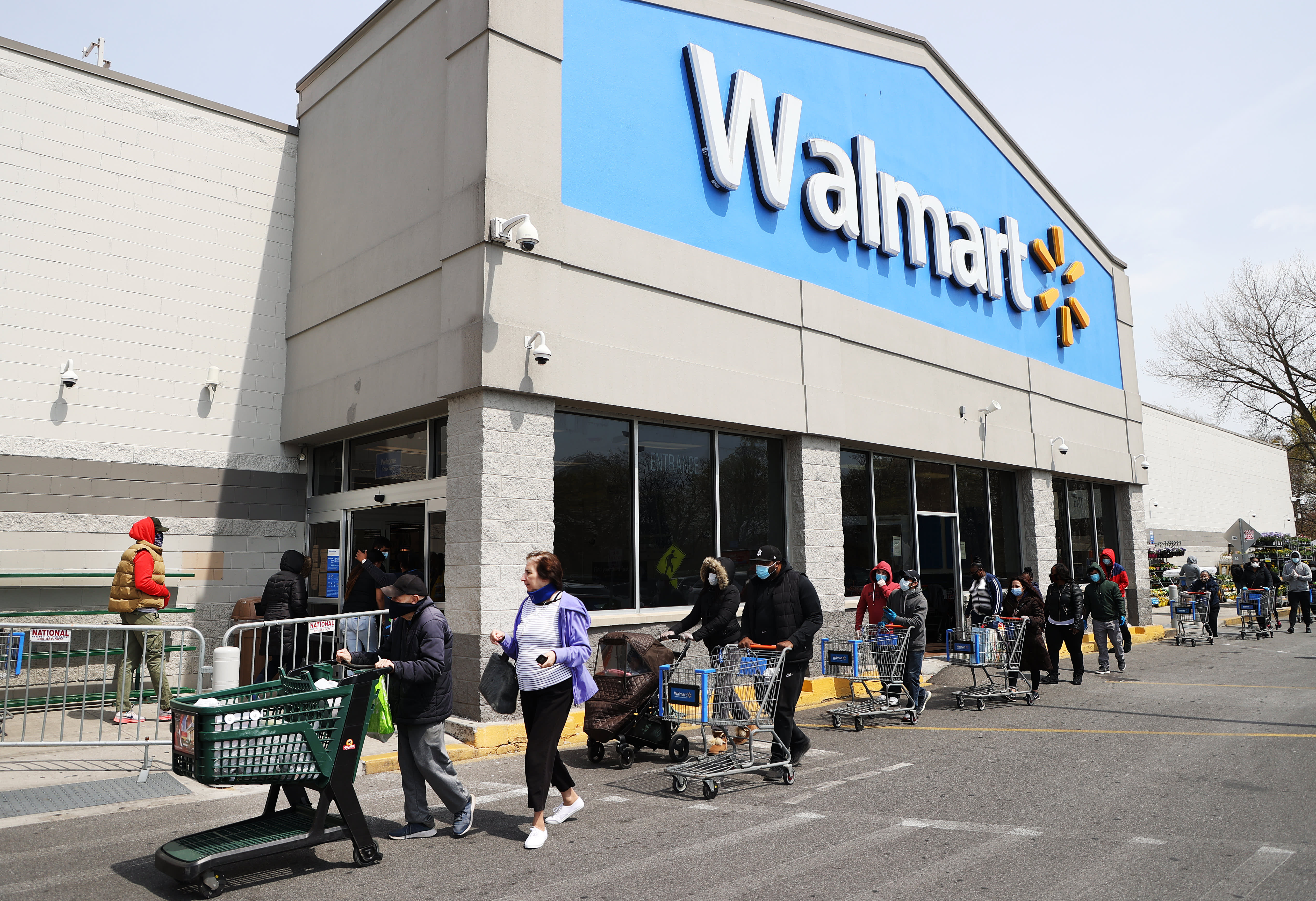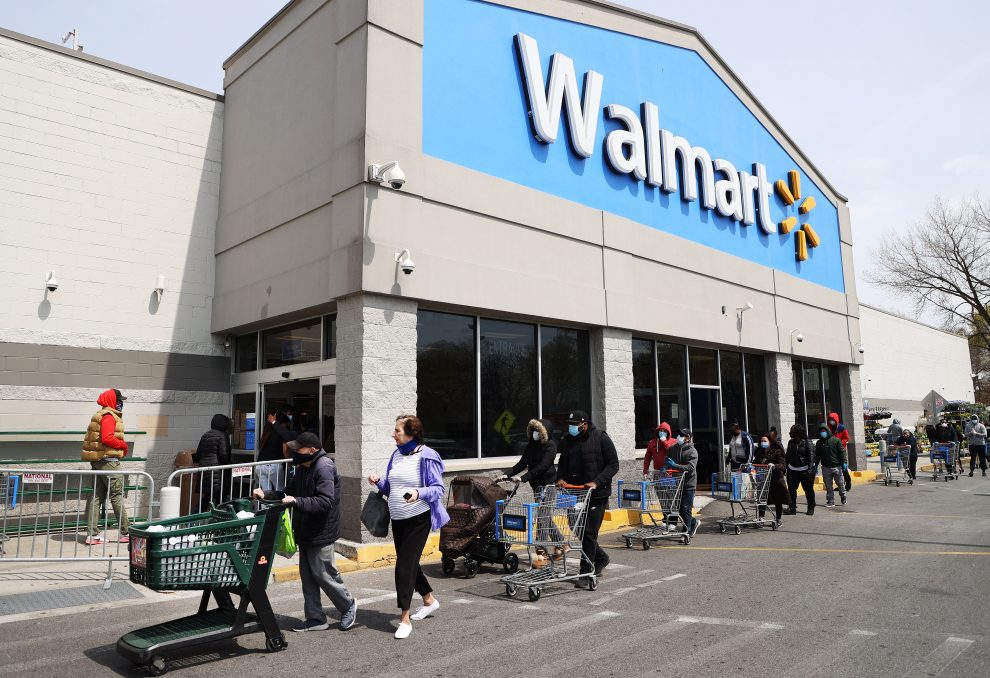
People wearing masks and gloves wait to enter a Walmart on April 17, 2020 in Uniondale, New York.
Al Bello | Getty Images
Walmart shares rose more than 4% in Tuesday’s premarket after the retailer said its e-commerce sales grew significantly as customers bought groceries, cleaning items and other essentials online during the pandemic.
The big-box retailer’s e-commerce sales in the U.S. shot up by 74%, and same-store sales grew by 10% in the first quarter.
But like many other companies, Walmart said the virus has created “unprecedented variability” in the economy, and it withdrew its financial outlook. It also said it was phasing out the Jet.com brand, the e-commerce company it bought for $3.3 billion in 2016, saying the acquisition fueled its e-commerce strategy.
In an interview with CNBC, Walmart CFO Brett Biggs said “it felt like several different quarters within a quarter, particularly in U.S.” He said the retailer saw a stockpiling surge in March, with a 300% peak in pickup and delivery.
But Biggs said April “started slow, particularly in general merchandise.” He said it picked up again in mid-April, after customers received stimulus money.
“The second quarter has started off pretty well as we continue to see the stimulus money come in for consumers,” he added.
Here’s what Walmart reported for the first quarter ended April 30:
- Earnings per share: $1.18, adjusted
- Revenue: $134.62 billion
Walmart reported net income rose to $3.99 billion, or $1.40 per share, from $3.84 billion, or $1.33 cents a share, a year earlier. Excluding items, Walmart earned $1.18 per share. Analysts were expecting Walmart would earn $1.12 per share, according to Refinitiv.
Total revenues grew by 8.6% to $134.62 billion from $123.9 billion a year earlier, exceeding Wall Street’s expectations of $132.80 billion.
Same-store sales grew by 10% in the U.S., beating expectations for 7.2%, according to StreetAccount consensus estimates.
The pandemic has shaken up customers’ shopping behaviors and makes earnings difficult for analysts to predict.
The retailer’s online sales growth was 74%, significantly above the 37% rise a year earlier.
As Walmart’s sales grew during the pandemic, so did its costs. Biggs said it spent nearly $900 million on expenses related to Covid-19. About three-fourths of that went to employee bonuses and expanded benefits, he said. The company has had two rounds of special bonuses for employees and accelerated the payout of first-quarter bonuses.
Walmart has kept stores open as an essential retailer during the coronavirus pandemic. It had a surge in sales in the early weeks of the crisis as customers stockpiled groceries, hand sanitizer and toilet paper. Instead of going to stores, customers turned to online shopping, with many buying a variety of items — such as hair color, beard trimmers and sewing machines — in anticipation of spending more time in their homes because of the outbreak.
To keep up with demand, Walmart hired 200,000 employees to help clean stores, stock shelves and fulfill online orders.
Correction: An earlier headline overstated the e-commerce sales increase.






